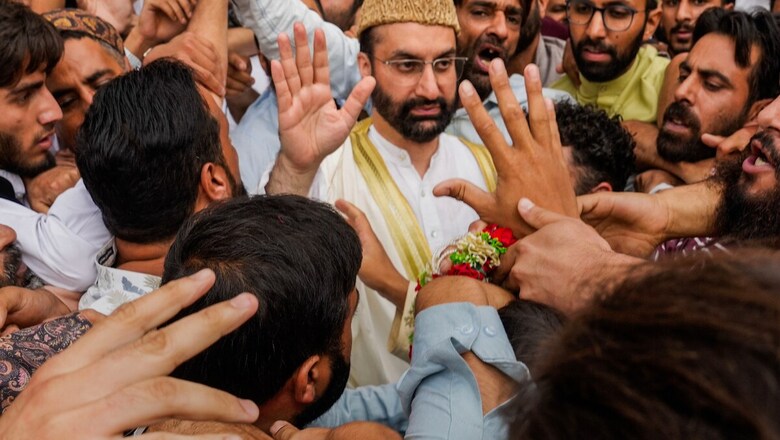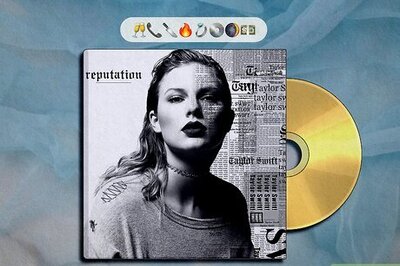
views
Mirwaiz Umar Farooq’s sudden appearance at Srinagar’s Jama Masjid after a hiatus of four years marks the beginning of a new chapter in post-Article 370 ‘Naya Kashmir’ or ‘New Kashmir’.
As he ascended the pulpit, the erstwhile face of Kashmiri separatism couldn’t keep his emotions in check. One can’t say whether the tears rolling down his cheeks were prompted by contrition or gratitude, but the Narendra Modi government’s decision to release Mirwaiz Umar Farooq from detention is certainly in good faith.
The sceptics will, no doubt, disagree. They will attribute the Modi government’s change of heart to a desperate stab at damage control; a bid by the National Democratic Alliance to underline its commitment to democracy when it is being accused of encroaching upon civil liberties by some.
As if on cue, the rights lobby has already described Mirwaiz’s release as a defeat for the politics of repression and prejudice. Beyond them, the Opposition has delighted at the Centre’s humbling – borne out of legal compulsion – and pointed out that “after Mirwaiz Sahab went to the High Court seeking his release, the government was forced to release him”.
But for those who have been closely following the arc of the Centre’s recent decision-making on Kashmir, the move to free the Mirwaiz is the latest in a series of steps being taken to restore the long-stalled political process in the Valley.
For instance, the Centre has begun the process of “healing” and “confidence building” by examining what is needed to conduct an election and restore statehood for Jammu & Kashmir. The Centre has also decided to reach out to political stakeholders in the Valley.
The Centre has long maintained that it is ready to engage with any voice in Kashmir that seeks to accept the primacy of India’s Constitution. No doubt the Centre will hope that the Mirwaiz will reciprocate its move to grant him freedom by turning his back on the separatist project that he espoused all these years.
In his carefully worded and haltingly delivered speech on Friday, the Mirwaiz said he would continue to seek “a peaceful resolution” of “people’s issues”, despite “paying the price” for it.
The phrase “people’s issues” is a nod to bread-and-butter matters that Kashmiris seem to have prioritised after the abrogation of Article 370. In the past, the Mirwaiz would have formulaically invoked the more loaded term “people’s aspirations” as a code or the “right to self-determination” or “azadi.”
In fact, the Mirwaiz on Friday pointedly distanced himself from his separatist antecedents. Addressing his rapturous audience, he said: “We have been called separatists, anti-national and peace disruptors. However, we have no personal benefits to gain from this. I did not have any personal ambition here.”
Interestingly, he also took a leaf out of the Prime Minister’s book. Quoting Modi’s “not an era of war” remark, he went on to generically denounce violence emphasising that “we have always believed and participated in efforts seeking resolution through an alternative to violent means, which is dialogue and reconciliation”.
While the Mirwaiz has made a good beginning by making all the right noises, if he has truly internalised the “this is not an era of war” sentiment, the Centre will expect him to go further. For one, it will hope that he will clearly denounce Pakistan-sponsored Islamist terror, especially bigoted attacks targeted at the Kashmiri Hindu community.
The ball is now in the Mirwaiz’s court. He is the keeper of his own continued “azadi.”
Rahul Shivshankar is Consulting Editor at Network18. He tweets at @RShivshankar.


















Comments
0 comment